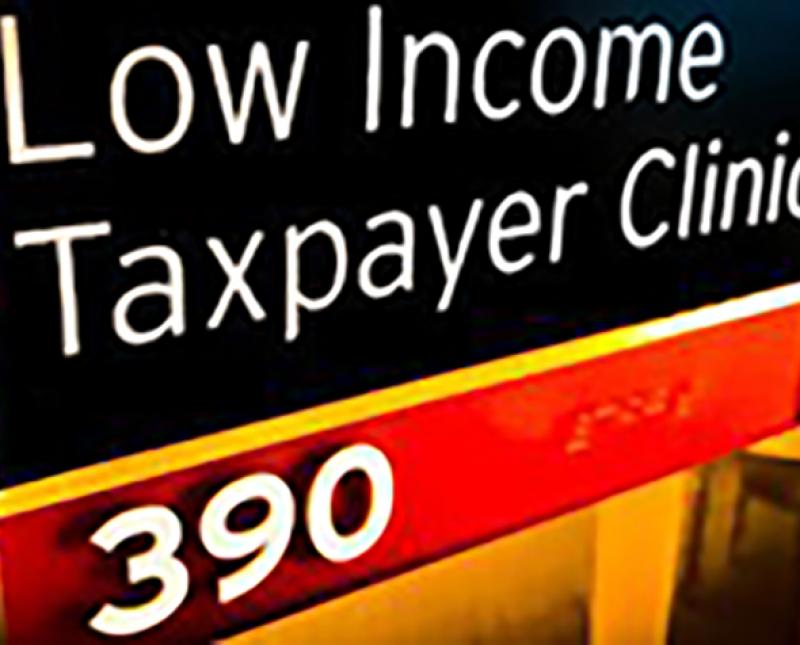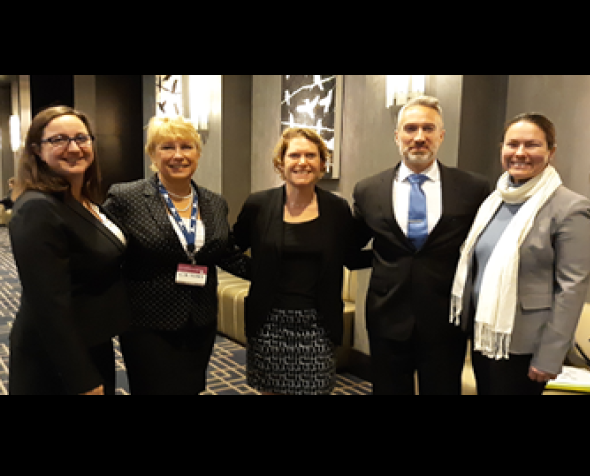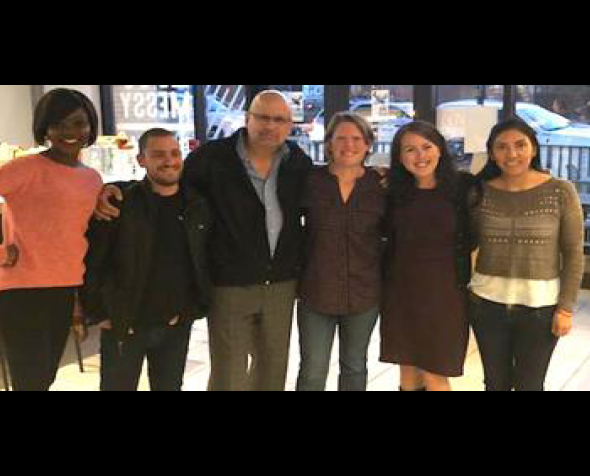Alumni Turn Experience into Expertise at Low Income Tax Clinics Across the Nation
Former student-attorneys sit at the helm of university-based tax clinics in North Carolina and South Dakota.
The University of Denver Low Income Taxpayer Clinic (DU LITC) is an all-star when it comes to helping people in dire need of help with the IRS. Putting in over 1,000 service hours and saving clients over $1.5 million a year, the student-staffed clinic takes on everything post-filing and does life-changing work for those buried in tax debt.
It’s also an all-star at preparing students for impactful careers in tax law and tax controversy.
Alumni Matthew James, JD’16, LLM’16, and Nikki McCain, LLM’13, are just two of the many shining examples of former clinic student-attorneys who are now paying that experience forward. Both are helping prepare more students for the legal tax space and have parlayed their education into successful careers: James serves as director of the North Carolina Central University (NCCU) School of Law LITC and McCain serves as director of the University of South Dakota’s (USD) Federal Tax Clinic.
According to DU LITC Director and Associate Professor of the Practice of Tax Law Erin Stearns, there is no doubt in her mind that these two alumni are doing exactly what they were meant to do.
“What’s so cool about this job is that there is so much impact, and Matt and Nikki got it immediately. They really just embraced it. They were here all the time, they wanted more cases, they were constantly asking questions about how it all works and they were putting the pieces together as they were going,” Stearns said.
Each has taken different paths to get to where they are, but both are taking what they learned and translating it into student success and serving the public good.
“I see the impact that doing this kind of work has on the people who do it and the people we do it for, and it is so amazing to have students who embrace that. They are ethical, they are smart, they are passionate and they are bringing a lot of positivity to this work” said Stearns.
Matthew James, Director, NCCU LITC
Tax was not an area of law that James had considered when he started his JD schooling at Denver Law. When he found out about the Graduate Tax Program, he had a short time to decide if he wanted to pursue an LLM.
“I was going to take a class and see if I liked it, but I had to make a quick decision on adding an LLM. I just jumped into it, and I loved it,” he said.
Working in the DU LITC gave him not only a chance to dive deeper into tax controversy issues but provided hands-on experience, as well.
“I wanted clinical experience, and I got a varied range of exposure, from conducting the client intake and interviews to negotiating with the IRS and the potential for litigating in tax court,” James said.
That experience has carried him far, taking what he learned and applying it to NCCU’s clinic where he has served as Director since September 2018 (he served as interim director prior).
“I overhauled most of the procedures of the clinic. I’m not sure that there is any aspect that is the same from when I became the interim director. I actually brought forms I created and procedures I learned from DU’s LITC with me and now use them here.”
Today, the NCCU clinic has about 100 open cases at any given time and is filling a large gap in both tax legal aid and education in the state. James hopes to increase the number of cases to help more clients.
“There’s a heavily underserved population in North Carolina, and we try reach as many people as possible,” he said, adding “We’ve had a pretty successful spring season so far. We are starting to see the fruits of our labors.”
In addition to the work the clinic does, James credits the incredible network of LITCs across the nation with providing strong support. He often reaches out to his alma-mater clinic and Stearns and Assistant Director and Associate Professor of the Practice of Tax Law Samantha Galvin for mentorship and to share good news.
“They’ve been an incredible support system. When I get excited about a case that we settle, I’ll text them to let them know,” he said.
Nikki McCain, Director, USD Federal Tax Clinic
McCain credits the LITC at Denver Law with giving her a solid foundation to grow her career.
“I started my own firm pretty much directly out of the LLM program. Without the clinic, I do not believe I could have started this firm. I credit everything I am doing currently to DU’s tax clinic,” she said.
She initially participated in the clinic to gain practical, real-world experience and work with a network of peers to represent clients. And gain experience she did.
“The first case I was handed was an audit reconsideration case requiring the substantiation of business expenses. I will never forget this case, as I was handed two large boxes full of receipts to account for all expenses claimed. Let’s just say that case took up much of my time,” she added.
Putting in the time and work must have made an impression, as McCain said that while working her own firm, she was also actively looking for LITC directorship positions across the nation. In 2016, she found her home as director of USD’s Federal Tax Clinic.
“Our Federal Tax Clinic focuses on the states of South Dakota and North Dakota, as North Dakota does not yet have a clinic. We assist those in rural areas and on Native American reservations,” she said.
In addition, her dedication to tax controversy has also led to co-authoring a chapter of Effectively Representing Your Client Before the IRS, a book she used during her time at DU LITC and now at USD’s Federal Tax Clinic.
McCain does not hesitate to encourage students to participate in LITC clinics when they have the chance.
“Do it! It is the best experience you will ever be provided. There is a difference between shuffling papers at a large law firm or accounting firm and actually working on cases from beginning to end at the tax clinic. You are putting in the time speaking with IRS representatives, drafting documentation to send to the IRS, and managing the client work along with your studies. You will never forget the cases that you represent or the people that you help.”






